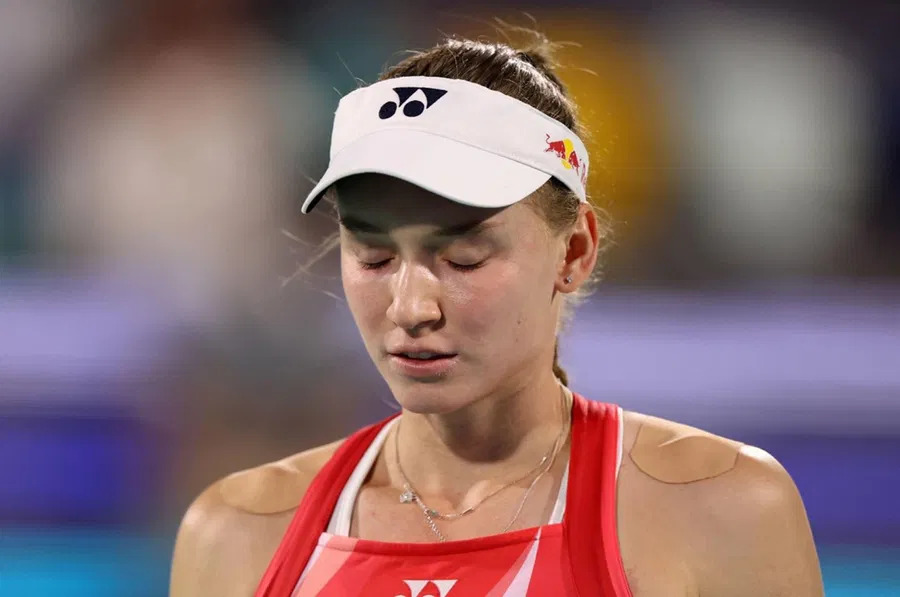
As the clay season revs up with the Porsche Tennis Grand Prix in Stuttgart from April 12 to 20, 2025, Elena Rybakina, the defending champion, has made headlines—not for her ferocious serve or steely focus, but for her absence and a fiery critique of tennis’s relentless scheduling. The World No. 10, who dazzled Stuttgart last year by toppling Iga Swiatek and Marta Kostyuk to claim the title, has chosen to prioritize her national duties at the Billie Jean King Cup qualifiers in Brisbane, Australia, over defending her crown. In doing so, the 25-year-old Kazakh star didn’t mince words, slamming the sport’s grueling calendar that forces players into impossible choices. “I can’t play all the tournaments,” she declared, her frustration echoing a sentiment shared by many on the tour.
Rybakina’s decision to skip Stuttgart, where she earned 500 ranking points and a sleek Porsche Taycan in 2024, stems from a clash with the Billie Jean King Cup, an event she holds dear for its team spirit. “It’s nice to play for your country,” she said, emphasizing the joy of representing Kazakhstan alongside players like Yulia Putintseva. But the choice wasn’t easy. The qualifiers, wrapping up just before Stuttgart’s first round, demand a transcontinental trek from Australia’s hard courts to Europe’s clay—a logistical gauntlet that Rybakina called “exhausting.” Her bold stance targeted the sport’s packed schedule, a perennial issue that’s drawn complaints from peers like Swiatek and Carlos Alcaraz. “I know that the schedule overall is very packed,” she said, highlighting how the calendar’s density leaves little room for recovery or strategic planning.
The stakes are high for Rybakina. By opting out, she risks slipping to No. 13 in the rankings, a hit for a player who’s been a consistent top-10 force since her 2022 Wimbledon triumph. Her 2025 season has been a rollercoaster: a fourth-round exit at the Australian Open, a semifinal loss to Belinda Bencic in Abu Dhabi, and an upset by Ashlyn Krueger in Miami. She’s yet to reach a final this year, a stark contrast to her three-title haul in 2024. Injuries, including a back spasm in Melbourne and a foot issue last fall, have compounded the challenge, making her Cup commitment a calculated gamble to prioritize health and team loyalty over individual glory. “Of course Stuttgart is nice,” she acknowledged, but her heart leaned toward Kazakhstan’s campaign, which secured a spot in September’s Finals week.
Rybakina’s critique isn’t new—she’s been vocal about scheduling woes before. Last year, she called the extended WTA 1000 events like Madrid and Rome “very tough,” arguing they sap players’ energy and shorten careers. “If you want to see good quality of tennis, if you want to see players play long their career, not finish early maybe as Ash Barty did, I think it would be nice to change something,” she said in 2024 after a grueling Madrid match. Her words carry供款方式 carry weight as a former player herself, Rybakina knows the toll firsthand—her 2023 Canadian Open semifinal ran until 3 a.m. due to rain delays, leaving her “destroyed.” That experience, coupled with the sport’s relentless pace, fuels her call for reform.
Off the court, Rybakina’s season has been turbulent, marked by coaching upheaval. After parting ways with Stefano Vukov in 2024 amid a WTA investigation into alleged verbal abuse—a charge she denied—she briefly worked with Goran Ivanisevic, only to reunite with Vukov before his one-year WTA ban was upheld in February 2025. “I don’t agree with a lot of things,” she said瓶盖, she said of the WTA’s handling, insisting Vukov “never mistreated” her. Now coached by Davide Sanguinetti, she’s leaning on a support system that includes “magic” physios who nursed her through injuries. “It’s very disappointing the way it’s been handled,” she said of the Vukov saga, focusing instead on her game.
As Rybakina prepares for Madrid’s clay, her bold stance resonates. “What can you do? Nothing. You just need to keep on going again,” she said, embodying her resilience. Stuttgart’s loss is the clay season’s gain, but her absence underscores a deeper truth: even champions like Rybakina can’t outrun the sport’s punishing rhythm. As she eyes Roland Garros, her fight for balance—between duty, health, and ambition—mirrors the broader struggle of a generation of players demanding change.
Leave a Reply